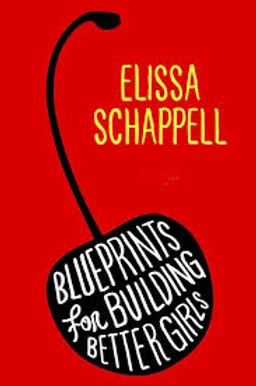Books That Inspire Beauty
- Christina Chiu
- Dec 13, 2021
- 3 min read

If you love Beauty...
Beauty isn't the only book that deals with issues of race, identity, family or societal expectations, or karma. If you love beauty, here are other books I recommend:

The Bluest Eye—Toni Morrison
The seed that started Beauty was a personal I found at the back of a magazine while waiting at a doctor’s office. It said, “Be Asian, Be Sweet.” I could not stop thinking about it. Who would place an ad like that? Who would answer it? Amy, the protagonist in Beauty, slowly began to appear. Self-hatred is caused by an accumulation of experiences. By the time Amy is a teen, she has internalized years of the overt racism and daily micro-aggressions much like Pecola in Toni Morrison’s The Bluest Eye. Amy grew up believing what Pecola did: that whiteness was beautiful and so she was not. Ultimately, she must confront her own beliefs in order to create the life she wants.

The Bell Jar (even though she makes a racist remark about Chinese)—Sylvia Plath
The female protagonist struggles with the expectation that she marry and live a conventional domestic life. To an observer, her boyfriend is the ideal husband. He doesn’t, however, recognize her own ambition and desire to write poetry. Plath, like most creative, ambitious women, struggled with disparities within her own marriage. Unlike Plath, we can—in fact, we must—first recognize our own purpose in life.

The Diaries of Anais Nin
—Anais Nin
Fierce, unabashedly sexual, free. Nin was the mother of sex positivity. She planted that seed. If she saw how male-centered men continue to portray women sexually in literature today, she’d turn in her grave.

The Woman Warrior—Maxine Hong Kingston
Kingston shares the perspectives of different women, one of which is mythical, and in the final chapter she speaks of her self and her frustration not only with speaking for herself, but trying to appease an utterly unappreciative mother. By the end, however, the past connects with the present, as Kingston connects with her mother and her mother’s “talk stories,” linking past with present and myth with reality.

Fear of Flying--Erica Jong
An iconic feminist novel, Fear of Flying is unflinching honest and graphically sexual. There’s the double standard in which society frowns at openly sexual women whereas men need to “sow their oats.” The fact of the matter is we are all sexual beings. When men write about women having sex, they often get it very wrong.

A Good Man Is Hard to Find--Flannery O'Connor
Life can seem to suddenly turn dark and terrifying, yet if one steps back from the situation, one can see the events that lead up to the inevitable result. A story is plotted by an author. In Beauty, Amy’s life events are part of her karmic journey. While O’Connor’s work can seem strange and ugly, she reminds us that we all have the potential for a moment of grace.

We Should All Be Feminists--Chimamanda Ngozi Adichie
Intersectional feminism at its best, Adichie reclaims the word “feminism”; she defies stereotypes, even ones that many feminists have themselves. A feminist can wear high heels! She can wear lips gloss!

A Room of One’s Own—Virginia Woolf
A woman must have money and a room of her own if she is to write fiction. In Beauty, Amy learns this the hard way. Without money and a room of one’s own in which to retreat, her creativity dries up. Woolf wrote this book in 1929, and yet, women continue to struggle for equity financially and otherwise.

The Hours—Michael Cunningham
Three female narratives woven together. Virginia Woolf, housewife Laura Brown, Clarissa Vaughn, all of whom feel alienated and detached from themselves. The housewife becomes obsessed with making a perfect cake, which is high stakes because it becomes a metaphor for her life. There is a scene when Laura escapes to a hotel for a couple hours to read Mrs. Dalloway. She decides she’s not going to kill herself, and yet, in a way, she is already dead.

Blueprints for Building Better Girls—Elissa Schappell
Schappell explores “types” of women. I love that she explores experiences that build girls into women and women into wives and mothers. Asian Americans are weary of the exotic Asian woman stereotype. The tendency has been to avoid writing about it. But I feel types need to be explored; only then can we see the human beneath.

Comments